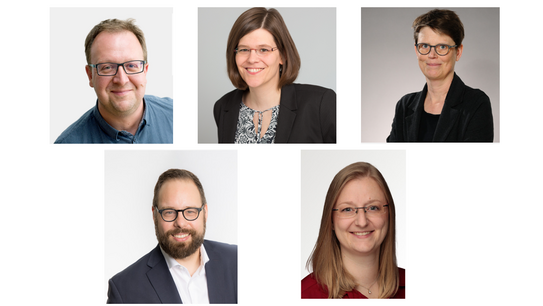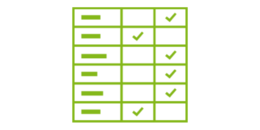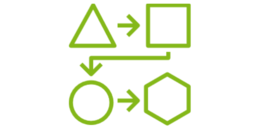Research Fellowship for Postdocs
No sooner is the dissertation completed than it is time to gain further qualifications – if possible through your own research project. Especially in the early qualification phase, research grants are available for this purpose. Most, but not all research grants are tied to a stay abroad. Marie Curie Individual Fellowships are an exception in that they are not fellowships in the strict sense of the word, as the researchers have a position at the host institution during their research stay.
Information on PhD scholarships you can find here, and information on financing shorter stays abroad you can find on our mobility page.
Research fellowships in comparison
Research fellowships consist of a basic amount (usually about 1,750 euros per month) and various supplements. The supplements include a subsidy for material costs, child allowance, foreign allowance, purchasing power compensation, etc. Often the funding agencies also offer a return scholarship, which is granted for the first months after the stay abroad.
Differences between the various research fellowships mainly concern the following aspects:
- Some scholarship providers do not require a stay abroad.
- Some funding agencies offer an accompanying non-material support.
- Some funding agencies only support certain disciplines or topics.

The Walter Benjamin Programme replaced the Research Fellowship of the DFG. The scholarship is one funding line of the Walter Benjamin Programme of the DFG; the other is the Walter Benjamin Position in Germany. You can combine the two funding lines with each other.
- Scope of the scholarship: Funding is available for stays abroad of up to 2 years. You can calculate the amount of the scholarship using the DFG's award calculator.
- Requirements: The scholarship is open to all disciplines and topics.
- Application: Applications can be submitted at any time in the early qualification phase after the doctorate.
- Follow-up funding and non-material support: Following the scholarship, you can apply for a return scholarship (max. 6 months).
The Alexander von Humboldt Foundation’s Feodor Lynen Research Fellowship is part of the Foundation’s overarching objective – the support of international scientific cooperation between German and foreign scientists.
- Scope of the fellowship: Financing is available for a stay abroad of 6 to 24 months. You can calculate the amount of the scholarship with the Humboldt Foundation’s scholarship calculator (in German only). A special feature is that the hostess or host must contribute to the financing of the fellowship.
- Requirements: The fellowship is open to topics and disciplines. However, the hostess or host must either be part of the Humboldt Network or an award winner of a specific science award. You will find a list of the relevant awards on the host search page.
- Application: There are no application deadlines. You can submit applications up to 4 years after the doctorate. The funding rate is approximately 40%.
- Follow-up funding and non-material support: Following the fellowship, you can apply for a return fellowship (max. 12 months). It is also possible to finance renewed research stays abroad. Non-material support provides the Humboldt Network, to which you belong through the sponsorship.
The Leopoldina Postdoc Scholarship is part of the Leopoldina Academy’s program to support early career researchers.
- Scope of the scholarship: The scope of the scholarship largely corresponds to the rates of the DFG.
- Requirements: The fellowship is open to early career researchers in the fields of natural sciences, medicine, and history of science.
- Application: You can submit an application up to 7 years after the doctorate. Applications can be submitted at any time; decisions are made four times a year. The processing time for applications is approximately three to four months.
- Follow-up funding and non-material support: Following the research fellowship, you can apply for a return fellowship (up to 12 months). Up to five years after the end of the fellowship, you can apply for further financial support for conference visits, short-term work stays, etc. Furthermore, meetings of former scholarship holders take place annually. Interested Leopoldina scholarship holders can also participate in a mentoring program.
The Postdoc Stipends of the Fritz Thyssen Stiftung is one of the few postdoc scholarships that are not tied to a (longer) stay abroad.
- Scope of the scholarship: The scholarship consists of a basic amount of 1,800 euros and additional benefits of 200 euros and is granted for a period of one to two years.
- Requirements: The research project must fit thematically into one of the Foundation’s funding areas.
- Application: At the time of application, the doctorate may not have been completed more than 2 years previously. You can submit applications at any time and the processing time is usually eight weeks.
Strictly speaking, the Marie Curie Individual Fellowships are not research fellowships, because the fellows have a position for the duration of the stay abroad and do not receive a fellowship. There are two possible program options: a) European Fellowship for one or two years within Europe and b) Global Fellowship for one or two years outside Europe, including a mandatory one-year return phase to Europe.
- Scope: The remuneration depends on the country-specific rates. The duration varies from 12 to 36 months depending on the program variant.
- Requirements: The funding is open to all disciplines and topics.
- Application: Applications are open to early career researchers with either 4 years of research experience or a completed doctorate. The aim of the program is to support the careers of young researchers. There is no fixed upper limit on how long the doctorate may have been completed. You can submit an application at the annual deadline.
- Follow-up funding: A one-year research stay within the EU follows the Global Fellowships, i.e. research stays outside the EU.
Application
A declaration by the hostess or host is required for the application, sometimes combined with further commitments. When you apply for a return scholarship, you must observe the given deadlines.
Please note that scholarships do not establish an employment relationship and therefore health insurance etc. must be taken out at your own expense.
Services and contact persons
Research Support Services offers a wide range of services related to the acquisition of third-party funding and application procedures. With regard to the application for a research grant, the team of the Grants Services supports you.
If you have any questions about research grants as a career component or about planning an academic career in general, the Graduate Center TU Dortmund will be happy to assist you.











